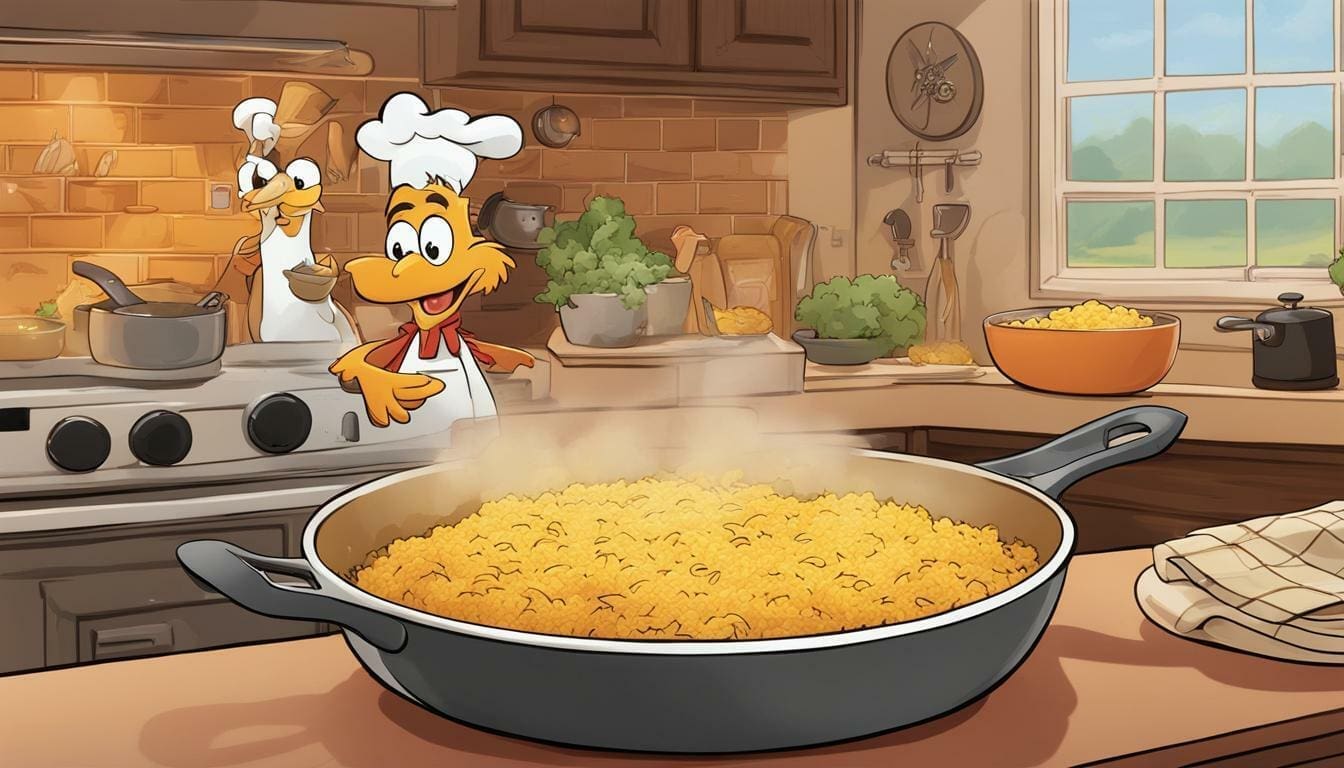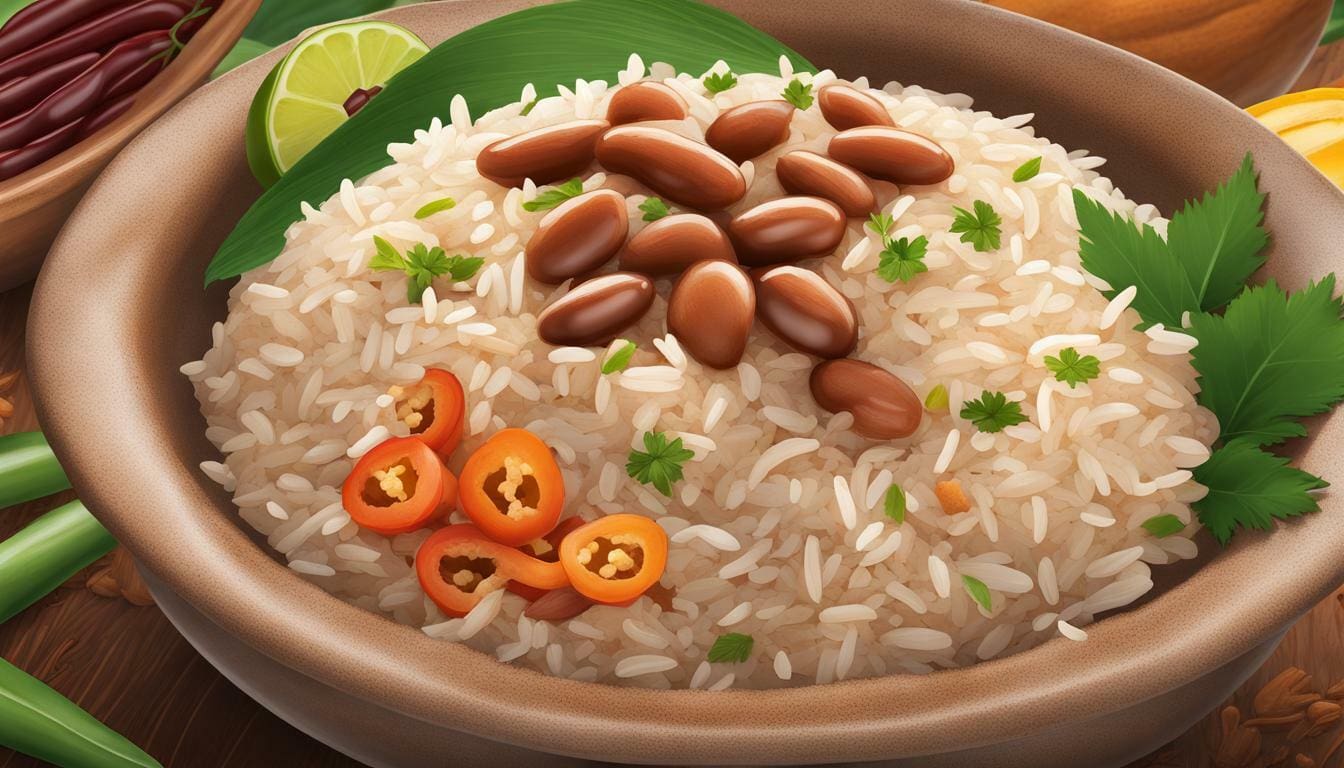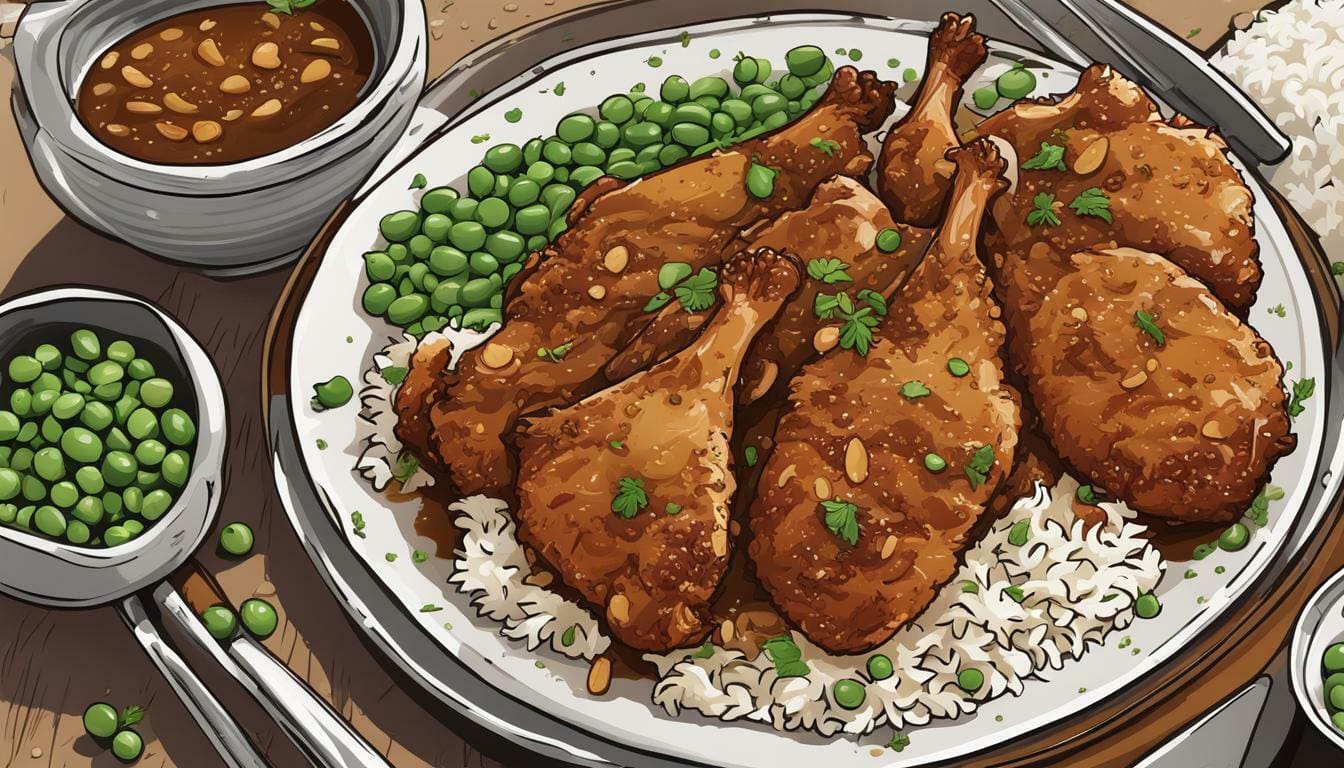Introduction
Paella is a popular dish that is often served on special occasions. But what about gluten-free paella? Is it possible to make this classic Spanish dish without gluten? This blog post will explore the gluten-free paella options and tips for making your version at home!
Paella Is A Popular Spanish Dish That Can Be Made With Or Without Gluten
Gluten-Free Paella Options
When discussing whether or not paella is gluten-free, it’s first essential to identify the difference between Spanish and Filipino/Mexican paella. The Spanish version of this rice dish is made with chicken, rabbit, seafood, artichokes, and bell peppers. However, this meal is often made outside of Spain with different ingredients. For example, in Filipino/Mexican paella, there is a swap of seafood for meat (usually chicken or pork), and red cabbage for green pepper. In addition, cornstarch may be used instead of flour to thicken the sauce. Some people ask: “Is paella gluten-free?” However, if we were to ask whether or not this rice dish was Spanish or Filipino/Mexican, it would be easier to answer the question.
So How Can You Make Paella Gluten-Free?
Simple – make it with rice instead of other ingredients! If you have a craving for this popular dish, consider making it with just rice, chicken, and saffron. Of course, this would still be great with some of the traditional ingredients.
A Gluten-Free Paella Is An Excellent Option For People Who Are Gluten Intolerant Or Have Celiac Disease
This rice dish would be an excellent choice for gluten intolerant people. Saffron is a very unique spice that adds a rich, exotic flavor. Also, rice is not an allergen for people who have celiac disease. However, some people have additional allergies to food allergens, including dairy and fish. Regardless of the allergy or intolerance, it’s important to identify allergenic ingredients as these can cause a reaction in sensitive individuals. The allergy or intolerance can come from the ingredients added or even from the processing or storage of the dish. Making your gluten-free paella is easy to do, and it’s more affordable than ordering it at a restaurant, too
There Are Many Different Ways To Make Gluten-Free Paella, So You Can Choose The Recipe That Best Suits Your Needs
1. You can make your gluten-free rice. Rice is the most common gluten-free ingredient used in paella. You can use rice flour to thicken the sauce (instead of cornstarch) to cut down on the carbs.
2. You can substitute alternative flour for the regular flour used in paella. For example, you could use chickpeas for some of the ground meat and substitute soy sauce with miso paste to make a flavorful sauce
3. You can also add other ingredients, such as chickpeas or artichokes, that provide different flavors and textures (although they should not be included as part of a regular meal plan).
4. Another option is to use a gluten-free broth (such as vegetable or mushroom) to add a unique flair.
5. Another great idea is to use gluten-free pasta instead of rice. This switch can also cut down on carbs, which can make this dish suitable for those on low-carb diets.
Don’t Forget About These Three Important Steps That Are Critical To Making Paella Gluten-Free
1. Make sure your ingredients are all gluten-free, including some of the uncommon ingredients, such as saffron and miso paste
2. Make sure you wash everything thoroughly – use clean dishes and pots/pans when cooking your paella
3. Make sure you use a glaze to coat the fish or chicken when adding it to the dish
Gluten-Free Paella Is Just As Delicious As Regular Paella, And It’s A Great Way To Enjoy A Classic Dish Without Worrying About Your Health
If you are gluten intolerant or have celiac disease and are craving paella, don’t fret! You can still enjoy the rich, exotic flavor of this Spanish dish. With the help of this simple guide, you’ll be able to whip up a batch of gluten-free paella in no time!
3 steps to make a homemade paella. Follow these steps to make your gluten-free paella:
1. Cook Rice
Use your favorite rice recipe (some people use rice flour instead of regular flour). Some people add saffron for extra flavor. You can also add chickpeas or artichokes for some texture and a unique taste.
2. Make The Sauce
Use the same sauce recipe you would typically use. Some people use a thickening agent (e.g., cornstarch, chickpeas, and miso) in place of flour to thicken the sauce. You can also use a miso paste if you wish or skip it altogether if you don’t have a miso recipe handy
3. Add Seafood Or Chicken
Depending on your taste, you can substitute fish for chicken or vice versa. Also, some people have switched out bell peppers for artichoke hearts.
If You’re Looking For A Tasty And Healthy Meal, Give Gluten-Free Paella A Try!
As mentioned above, gluten-free paella can be an excellent choice for those who are gluten intolerant or have celiac disease. It’s easy to make and not just for special occasions. You can mix some unusual ingredients (such as artichokes or miso) to make it more suitable for your diet.
How do you feel about this famous Spanish dish? Share your thoughts in the comments section below!
Knowing what paella is and learning how to make it safely and correctly doesn’t mean you can stop there.
Conclusion
The Spanish rice dish called paella is a must-try for any foodie traveler. It is a delicious meal you would love to grab from the restaurant each time you go on a trip. But the truth is, paella is not only about the ingredients but also how you make it. These days, it can be done quickly. You just need some fresh ingredients and cooking equipment to make this dish.
You aim to understand how each of your creations works and works together while giving you the tools and knowledge to expand your palate and invent new favorites.
Foodies are always learning more about food – but it’s not just about learning information; it’s also about learning how other people use their favorite dishes differently.


